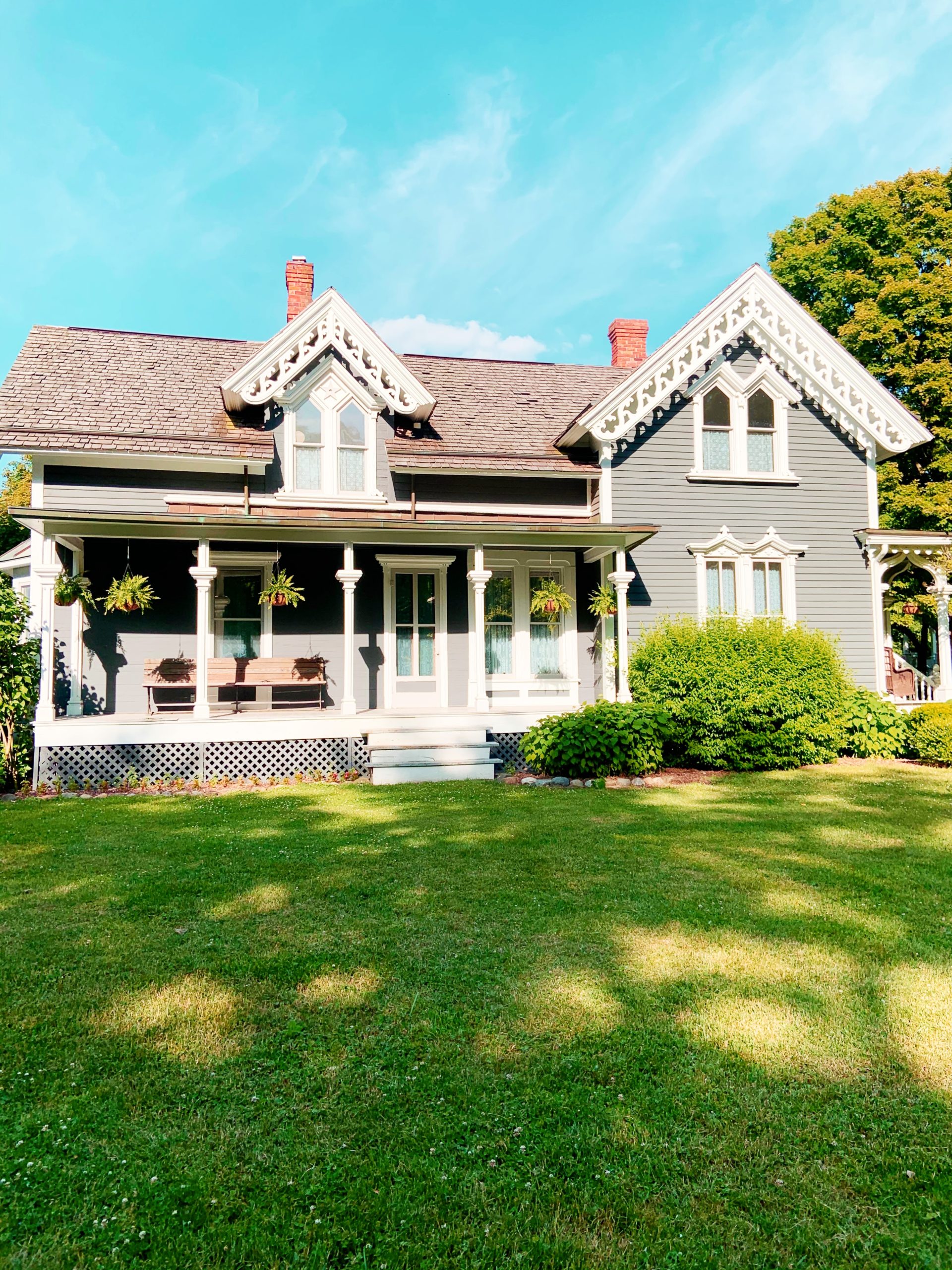Buying your first home is a magical feeling, as you move away from renting in London, and start adulting. Renting small box rooms are a thing of the past, as are chaotic house shares with strangers, and the thought of sharing with nine people in one house again sends shivers down your spine. Instead, you look forward to a brand new tomorrow, in a flat, where it is just you and your partner, moving in together. But getting a mortgage when you are self-employed can be difficult. You struggle to get on the property ladder as a first-time buyer, and worry that your fluctuating income can stop lenders from approving your mortgage.

If you are self-employed, it can be more of a challenge to get a mortgage because you will need to prove you have a reliable income. A big increase in your income or uneven income over recent years can also prove problematic, but it does not mean that mortgage lenders are less likely to approve your application. Whether you are employed or are self-employed, lenders are just assessing your ability to make repayments. They want to make sure that you will be able to pay your mortgage each month, and can afford to buy your first home.
The myth that irregular income or ‘less than 3 years worth of accounts’ means that you automatically don’t meet the requirements for a mortgage is false.Organisation is key and if you’re considering buying a house in the near future it’s never too early to start looking for a better way of organising your accounts and pre-empting the questions that lenders might ask about your income.Whether you hire an account, keep a finances spreadsheet or use accounting software, it might be harder to get a mortgage when you are self-employed but it’s not impossible!

So how can you get a mortgage for your first home as a freelancer? As well as keeping your finances in order, most lenders will ask for three years worth of SA302’s to show you have a ‘regular income’. The SA302 form shows your tax breakdown based on your latest self-assessment submission, and is evidence of how much you have earnt in a three year period. Proof of income does vary from lender to lender, but some mortgage lenders will ask for a combination of bank statements, profit and loss reports and balance sheets. You might also need to show an expenditure report, showing your outgoings, whether that is self-employed business costs, debt repayments or subscriptions.
To prove your income when you apply for a self-employed mortgage, you will need to provide:
- Two or more years’ certified accounts
- SA302 forms or a tax year overview (from HMRC) for the past two or three years
- Evidence of upcoming contracts (if you’re a contractor)
- Evidence of dividend payments or retained profits (if you’re a company director)

While it might sound terrifying, don’t let your self-employed status stop you from getting the mortgage of your dreams. If you have less than one year of accounts you might experience rejection because it can be difficult for the lender to be confident that you can maintain your income, but again, it’s not a ‘no’. Be prepared to shop around to find a lender that can help you be a home owner when you are self-employed, and remember that the more years of accounts you have, the easier it is to get a mortgage. When you have three years under your belt and a fruitful ‘cashflow’, you will find that the average mortgage lender wont reject your application.
This handy guide will show you how to get your dream first home, even if you are a freelancer, self-employed, a small business owner or a contractor. It will teach you how to organize your finances, identify what steps you should take as a freelancer to get your mortgage application approved, as well as common mistakes to avoid, and how to increase your chances of buying your own house.

Use A Mortgage Calculator To Assess Your Affordability
As a freelancer I know all too well how difficult it can be to manage your finances, and buying your first home can be scary. But don’t let the fear of ‘the unknown’ put you off being a home owner, as despite the scaremongering in the media, working for yourself shouldn’t limit your access to mortgages that employed workers have. Sure, it is easier to show earnings when you are paid through PAYE as you have payslips, and P60’s to prove your income easily. But lenders don’t just look at your income when approving your application.

Mortgage lenders also take into consideration other factors such as your credit score, deposit, personal commitements and expenditure when figuring out how much you can borrow. To assess how much your mortgage would need to be based on your freelance income, you can use a mortgage calculator, which is great for first-time buyers. Mortgage calculators shows how much you might be able to borrow based on your job, investments, annuities, alimony and government benefit payments. They are free, easy to use and give you a rough figure of how much you can borrow.
Let’s say that your annual salary is 28,000 and your outstanding debts are 1,000. You also have a small business which you earn 7200 from each year, and your down payment is 5%.When using Mortgage Calculator UK‘s ‘affordability tool’, it breaks down your salary into ‘monthly’ and ‘annual’ income, and establishes the mortgage amount with no debts, the mortgage amount with debts, down payment, and the home value with down payment. For the figure quoted above you would get between £105,600-£158,400 with no debts and £102,600-155,400 with debts.

This means that your down payment would be between £5400-£8,178.95 roughly, making your home worth between £108,000-163,578.95 once the down payment has been put down. Of course, mortgage calculators that you use can differ, but it is a great way of determining how much you can afford to spend on a mortgage. You can even find out how much you can borrow if you have a joint acccount with your partner. Your partner might earn 45,000 per year, with outstanding debts of 2000. Your combined salary would be £6,683.33 per month, with £80,200 per year. This means that your mortgage amount with no debts would be between £170,200-£240,600.
By estimating your mortgage affordability, you can assess getting a mortgage when you are self-employed, and whether you can realistically afford it. After all, if you are already in debt, you don’t want to out put yourself out. Make logical and rational choices that take into consideration how much money you have saved, the average amount you are earning each month, and regular costs that eat into your income.

Determine Where You Can Afford To Live
As someone who lives in London, it is no secret that buying your first home in London can be pricey. So if you are comfortable enough to explore moving out of the city, or a cheaper area in London, the BBC’s house price calculator shows you where you can afford to live in the UK. For example, if you live in Waltham Forest in East London, and are looking for a one bedroom house in the UK, it will show you that properties are between £250,000-£349,500 on average, a 2.4% increase in the last year. This means you will pay around £894- £1,349 per month. When you are self-employed this can be a daunting figure, so it is always wise to explore other alternatives to find your dream home.

If you look at London as an average, it has had a 1.9% increase over the last 12 months, and ranges between £540,000 to 750,000. This means you will be paying between 2,221 and 3,400 per month, with the most expensive area being Kensington and Chelsea. On average houses range between £450,000-£800,000, with monthly payments being between £1809-£3687 per month which is crazy expensive. However there are cheaper areas in the UK which might be worth considering including Torbay (in Devon, South England), Bridgend (Wales) and Burnley (Lancanshire). Torbay is beautiful, and is an area of outstanding natural beauty.
What’s more houses range between £80,000-£119,950, with monthly payments from £104-£267. Bridgend is another cheap region, where houses are between 60,000- £115,00, but it is Burnsley that scoops the crown for affordability, with houses between £39,999-£54,750. Of course where you live might depend on your job as a freelancer, family, schools and other commitements, so even if you do live in London, consider where you can afford to live. This will help you get an affordable mortgage when you are self-employed, without worrying about finances.

In a nutshell, house prices have increased after COVID-19, and the biggest price rises have been for detached houses close to the centre of London. While the prices of flats have decreased, house prices for detached and semi-detached houses (20-40 KM) from the centre of London, have increased siginificantly. However, once COVID-restrictions are stopped, you can expect to see a fall in house prices, especially when the full economic impact of the pandemic starts to be felt. This ties in with the ‘stamp duty holiday’ which is ending in October 2021.
Ensure That Your Credit History Is In Good Shape

When you have excellent credit history and are self-employed, this can increase your chances of getting a mortgage and better rates. Your mortgage lender will not only assess your personal credit history, but also your business credit history, so it is important that you keep a close eye on your credit reports. To ease your mind, you should check your credit reports once every year. Your credit score is a three digit number based on the information in your credit card report, which includes your loan payment history and credit card balances.
A higher credit score helps you secure a good mortgage when you are self-employed, but don’t worry if your credit score isn’t what you would like it to be. There are steps that you can take to improve your credit score before you apply for your first mortgage. Firstly, you should always pay on time, as your payment history affects your credit score. To stay on top of your payments you can set up a calendar reminder or enroll in automatic payments. For example you can set up an automatic payment so that you always pay your rent on time.#

If you are worried about late payments that you may have made in the past, the impact on your credit score does decrease with time. Most negative items have little impact on your score after two years, so by making payments on time moving forward, you will build up your credit score. You should also keep your credit utilisation low, as it measures the balances you owe on your credit cards relative to your cards’ credit limits. Aim to stay below 30% for each individual credit card, and improve your ratio focus to get the house you have always dreamed of.
You can keep your credit ulization low by paying more than your monthly minimum to decrease your credit card balances and leave cards open after paying them off. While it will reduce the overall balance that you owe, it will maintain your total limit, which allows you to lower your credit utilization ratio.Another way to stay on top of your credit score, is to report any inaccuracies on your credit report.

For example identify theft and reporting errors can negatively impact your credit score. When you see something amiss on your report you will need to send a written dispute letter to all three credit bureaus (Experian, Equifax and Transunion). It will take around 30 days to investigate a disputed item and the positive impact on your score can be immediate.However if you have numerous undisputed late payments, disputing an inaccurate payment will change your score less than it would if you had a near-perfect record.
Keep Tax Deductions To A Minimum

As a freelancer I love the freedom of working from home, choosing my own hours, and the flexibility of being my own boss. There is no office politics, or dramatic workplace environments, instead there is harmony, solitude and a beautiful home office minutes away from Wanstead Flats. I can decide what writing projects I take on, how many days a week I want to work, and even whether I want to take on a full-time and part time job alongside my freelance writing business and blog, both creative outlets which I am passionate about.
However, there are a lot of expenses and as a blogger I have to pay out for my own computer, camera, blogging subscriptions such as Photoshop, as well as business travel, domain and hosting costs, and blogging audits, which can be expenses. While it is important to expense the ‘important’ costs such as having to pay out for a new camera or laptop, you should write off fewer expenses for at least two years before applying for a mortgage. This is because mortgage lenders look at your net business income.

When you deduct a lot of expenses it appears as though you ‘earn less’ than your actual income. This can work against you when applying for a mortgage, as to get the best deal, you need to show that you have the income to afford mortgage repayments. For example if you normally work from home, and claim utility bills as part of your expenses, focus on ‘super costly repairs’ or ‘purchases’ that are really integral to your business. In my case I had to pay out for a new computer, get computer data that became coruptted fixed and added onto a harddrive, as well as repairing a faulty computer, and paying out for a new camera. These are essential costs that still need to be expensed as they are for my ‘business’.
Keeping your tax deductions to a mimimum will help you get a mortgage when you are self-employed and boost your application. However, it can be difficult to cut down on expenses, so its important to track your outgoings. Are there any bills you can cut down on? Maybe you are paying a lot of money for SEO tools such as Ahrefs, SEMRUSH and MOZ. Choose one SEO ‘paid tool’ that benefits you the most, is the most cost-effective, and use the free-version of the more expensive tools, until you have your dream mortgage, to reduce your outgoings.

What Are Your Tips For Getting A Mortgage When You Are Self-Employed?
Leave a Reply